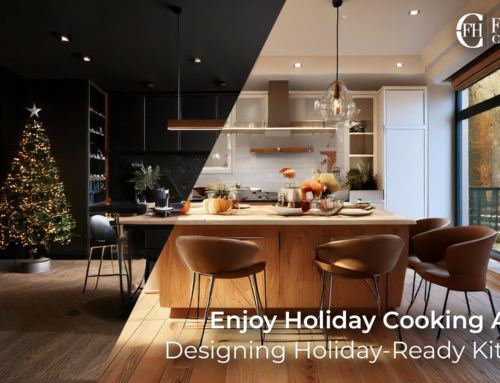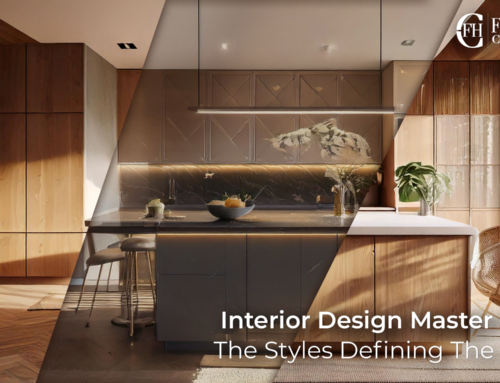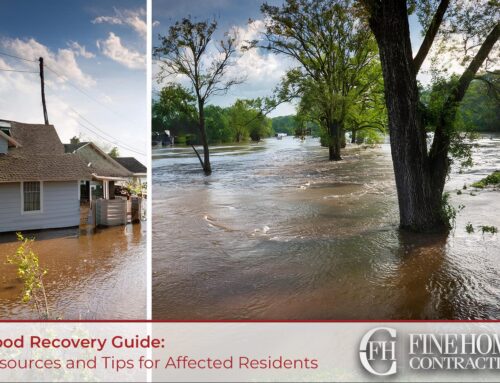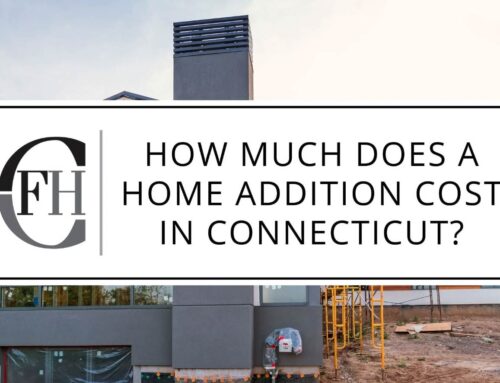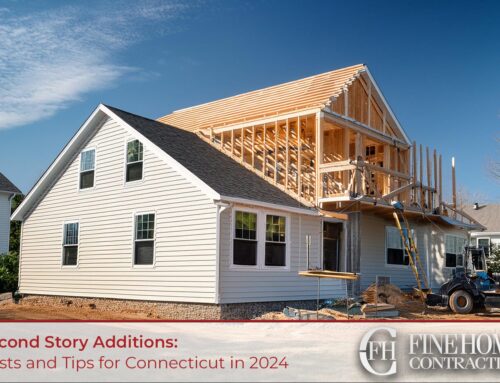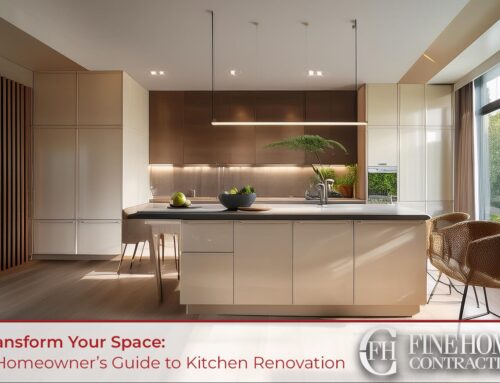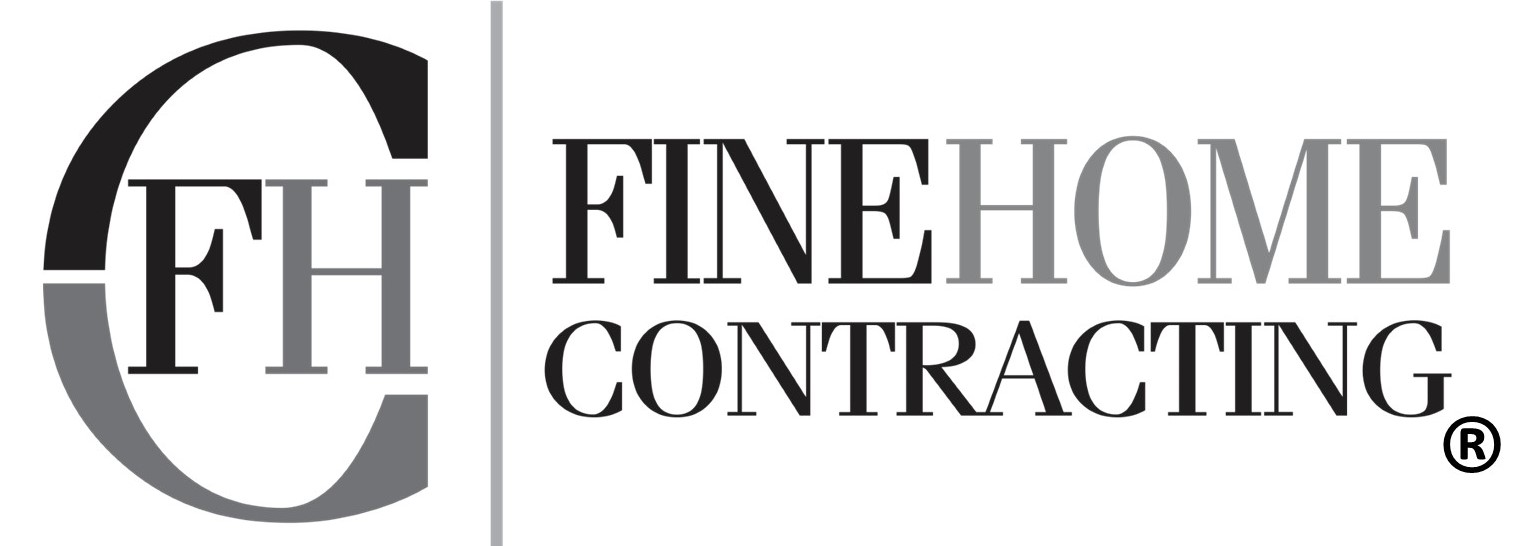In the ever-evolving world of home improvement, one of the most significant advancements of the past 50 years has been in the realm of flooring: The introduction of luxury vinyl plank (LVP) and flooring has revolutionized the way homeowners approach remodeling projects. In contrast to the previously-dominant linoleum flooring, LVP offered homeowners a game-changing alternative that not only replicated the rich aesthetics of natural wood, stone, or tile but also brought exceptional durability, water resistance, and ease of maintenance.
As an experienced residential contractor, we’re here to provide you with a detailed comparison of LVP and traditional flooring options, considering factors like quality, cost, and appearance. Whether you’re planning a complete home remodel or just considering a flooring update, this guide will help you make an informed decision.
Comparing LVP and Traditional Flooring
Quality
LVP
LVP comes in a wide variety of brands, finishes, and levels of quality. Budget friendly options range from store stock at Home Depot and Lowes, while higher end brands such as CoreTec offer a wider variety of colors and textures. Thanks to advancements in manufacturing techniques, LVP now boasts impressive durability: It’s resistant to wear and tear, making it suitable for high-traffic areas, and is also waterproof, which is a significant advantage in areas prone to moisture. That makes LVP a great option for foyers and entryways, bathrooms, and even kitchens, with proper installation.
Traditional Flooring
Traditional flooring options, such as hardwood, laminate, or carpet, vary in quality. Hardwood flooring is known for its durability and timeless appeal, but tends to come with a higher price tag and more involved installation. Laminate and carpet are budget-friendly, but also more susceptible to wear and staining.
It’s worth noting all of these traditional flooring materials do not typically offer the same level of water resistance as LVP.
Cost
LVP
One of the standout features of luxury vinyl plank flooring is its cost-effectiveness. LVP provides homeowners with the appearance of high-end flooring options like hardwood or stone without the hefty price tag. It’s a budget-friendly alternative that doesn’t compromise on style.
Average Costs: $4 to $13 per square foot with labor included.
Traditional Flooring
Traditional flooring materials vary widely in cost. Hardwood tends to be on the higher end of the price spectrum, while laminate and carpet are more budget-friendly options. Keep in mind that the installation cost can add up, so factor that into your budget.
Average Costs:
- Hardwood: Between $6 and $12 per square foot including labor.
- Carpet: Between $1.30 and $15 a square foot including labor.
(Prices vary heavily depending on quality of materials, under-carpet padding, and installation style. )
Appearance
LVP
Luxury vinyl plank flooring has come a long way in mimicking the natural beauty of hardwood, stone, and ceramic tiles. With an array of styles, textures, and finishes, it’s challenging to distinguish LVP from its pricier counterparts. The variety of design options available ensures that you can achieve the look you desire.
Traditional Flooring
Traditional flooring materials are often used for their timeless, luxurious appearance and varied functionality. Hardwood, for example, is a great way to warmth and elegance to a room, or create contrast between organic and natural materials. Likewise, carpet can be used to create separation between open spaces, add a welcoming, cozy feeling to rooms, or keep feet off of a cold floor without adding heat. However, the popularity of hardwood, linoleum, and vinyl are subject to trends, and some options may become outdated over time.
Common Issues with Luxury Vinyl Flooring:
While luxury vinyl plank flooring has many benefits, it’s important to be aware of some common issues.
VOC Emissions
Some LVP products may emit volatile organic compounds (VOCs) during installation, which can affect indoor air quality. To address this concern, choose LVP products with low or zero VOC emissions. This is a particular concern for those with chemical sensitivities or respiratory issues.
Subfloor Preparation
For a successful LVP installation, the subfloor must be smooth and free of imperfections. Any irregularities can affect the appearance and performance of the flooring. It’s important your installer is familiar with LVP, as vinyl planks tend to buckle and raise when installed too closely together.
Wear Layer Thickness
LVP is constructed with a thin, clear, resistant layer over the top of the “cosmetic” pattern that give it it’s look. This wear layer protects the more delicate vinyl layers of the flooring from wear and tear, adds water resistance, and gives LVP it’s sheen.
The wear layer thickness on LVP can vary, affecting its durability. Thicker wear layers provide better protection against scratches and dents. Be sure to select a product with an appropriate wear layer for your specific needs. Kitchens, hallways, and other high traffic areas benefit from thicker, more durable flooring.
Most Popular Brands of LVP
Shaw Flooring
Shaw Flooring, in business for over 50 years, specializes in manufacturing luxury vinyl plank flooring known for its wide range of styles and finishes. Shaw Flooring has retained its brand, product lines, and headquarters in Dalton, Georgia, even after being sold to Berkshire Hathaway Inc. in 2001.
- Cost Range: $ to $$$
- Year Founded: 1946
- Other Notable Information: Shaw Flooring is popular among DIY enthusiasts and offers a diverse selection of products.
COREtec
COREtec, established in 2013 as a premium product offering by USFloors, focuses on quality and waterproofing. In 2016, USFloors was acquired by Shaw Industries. COREtec products are known for their high-end appearance and resilience, although they may come at a premium price.
- Cost Range: $$ to $$$
- Year Founded: 2013
- Other Notable Information: COREtec’s products are designed with a strong emphasis on design and quality.
Mohawk
Mohawk, with roots dating back to 1875, offers affordable flooring options with reliable quality. Their products are widely available at retailers like The Home Depot, Walmart, and Lowe’s, making them accessible to homeowners on a budget.
- Cost Range: $ to $$
- Year Founded: 1875
- Other Notable Information: Mohawk’s Hazelnut Oak Plank Vinyl is a popular, in-style, and budget-friendly choice for DIYers.
NuCore Flooring
NuCore Flooring is an exclusive product line manufactured and sold by Floor & Decor. It incorporates antimicrobial properties to protect against microorganisms. The brand aims to provide homeowners with clean and durable flooring options.
- Cost Range: $$$
- Year Founded: 2000
- Other Notable Information: NuCore Flooring’s White Pewter Rigid Core Luxury Vinyl Plank offers enhanced protection against bacteria, viruses, and fungus.
Home Decorators Collection
Home Decorators Collection, now exclusively sold at The Home Depot, offers a wide variety of flooring options in various styles, textures, finishes, and sizes. While the brand provides homeowners with diverse choices at lower budgets, it’s essential to note that less popular products frequently get discontinued.
- Cost Range: $ to $$
- Year Founded: 1991
- Other Notable Information: Home Decorators Collection’s True Cherry and Pelican Gray Rigid Core Vinyl Plank Flooring are popular options that match current trends.
LVP FAQ
Yes, LVP should have an expansion gap around the perimeter to allow for expansion and contraction.
Common underlayment choices for LVP include cork and foam, which provide cushioning and sound absorption.
Yes, LVP can be installed over a concrete subfloor, provided it’s clean, dry, and level.
Yes, LVP is water-resistant, making it a suitable choice for bathrooms and kitchens.
Some popular LVP brands include Shaw Flooring, COREtec, Mohawk, NuCore Flooring, and Home Decorators Collection.
Allow your LVP planks to acclimate to your home’s environment for at least 48 hours before installation.
LVP is more affordable, water-resistant, and easier to maintain than hardwood. It’s also available in a wide range of styles.
In many cases, LVP can be installed over existing hard surfaces, but it’s important to ensure the subfloor is flat and free from imperfections.
LVP flooring can last between 10 to 25 years, depending on the quality of the product, correct installation, and maintenance.

